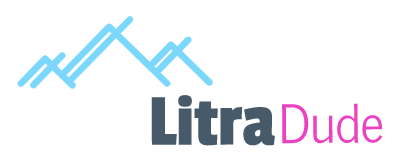RELATIONSHIP OF SOCIOLOGY WITH ECONOMICS
What is Sociology?
Sociology is the scientific study of society and human social behaviour. It delves into the organization of social relationships, aiming to unravel the dynamics of structured social patterns. Let’s break down sociology into key points:
Defining Sociology:
Study of Human Social Behavior: Sociology primarily focuses on analyzing how people interact and form relationships within society.
Core Institutions: It investigates vital social institutions such as the family and the maintenance of social order.
Societal Evolution and Function: Sociology explores how societies come into existence, persist, and adapt to change over time.
Social Processes: It deals with critical social processes, including cooperation, competition, accommodation, assimilation, conflict, communication, differentiation, and stratification within society.
Methodology: Sociology employs empirical data collection and inductive reasoning to gather insights, and it also involves deductive aspects to formulate generalizations about societal phenomena.
In essence, sociology is the systematic study of human social life, seeking answers to questions about the emergence, persistence, and change of societies. It explores the intricate web of human interactions and societal structures, shedding light on the complexities of our shared social world.
Sociology and Economics
Economics is a social science that deals with human wants and their satisfaction. Classical economics assumes that people have unlimited wants and the resources to satisfy these wants are limited. They are always engaged in work to secure the things they need for the satisfaction of their wants. The farmer in the field, the worker in the factory, the clerk in the office, and the teacher in the school work only for the sake of earning resources to satisfy their needs.
As a science of society, Sociology is highly concerned with the institutions and associations of human beings. Sociology is the scientific study of human interactions and inter-relations, their conditions and consequences. But Economics deals with the economic activities of man. It is basically a science of wealth and choice.
DIFFERENCES BETWEEN SOCIOLOGY AND ECONOMICS
It’s important to note that both sociology and economics are social sciences, but they have distinct focuses and methodologies. Here, we will discuss the differences between economics and science in terms of their methods and techniques, providing examples for clarity:
The subject of Study:
Economics primarily studies the allocation of resources, production, distribution, and consumption of goods and services. It’s concerned with wealth, choices, and the economic behaviour of individuals and institutions.
Sociology, on the other hand, studies society, social relationships, and the behaviour and interactions of people within a social context. It focuses on understanding social phenomena, including culture, institutions, and social structures.
Historical Development:
Economics is an older science, with roots dating back to classical economists like Adam Smith in the 18th century.
Sociology emerged as a distinct discipline in the 19th century, with the work of thinkers like Auguste Comte and Emile Durkheim.
Abstract vs. Concrete Science:
Economics is often considered a concrete science because it deals with measurable and quantifiable economic factors, such as prices, GDP, inflation rates, and market behavior.
Sociology is considered more abstract because it deals with social concepts and behaviors that are often challenging to quantify. It examines social norms, values, and cultural aspects.
Scope:
Sociology has a broader scope and covers a wide range of social issues, including family, education, religion, politics, and more.
Economics has a narrower focus, concentrating on economic aspects like supply and demand, market structures, and economic policies.
Unit of Study:
In sociology, society is the primary unit of study. Sociologists analyze how various social institutions and structures affect society as a whole.
In economics, the individual is typically considered the unit of study. Economists often study how individuals make choices, allocate resources, and respond to economic incentives.
Focus on Activities:
Sociology is concerned with social activities, including interactions, relationships, and cultural practices. For example, sociologists might study the impact of social media on interpersonal relationships.
Economics primarily focuses on economic activities, such as the production of goods, the distribution of wealth, and consumer behaviour. For instance, economists might analyze the factors influencing consumer spending patterns.
Unit of Analysis:
Sociology often uses society or social groups as its unit of analysis. For instance, a sociological study might examine how changes in marriage patterns affect society as a whole.
Economics typically uses the individual as its unit of analysis. For example, an economic study might investigate how changes in tax policies influence the behavior of individual taxpayers.
Methods and Techniques:
Economics often relies on quantitative methods, including mathematical models, statistical analysis, and empirical data. For example, economists use regression analysis to study the relationship between variables like income and consumer spending.
Sociology employs a range of qualitative and quantitative methods, including surveys, interviews, content analysis, and ethnographic research. Sociologists use these techniques to gather insights into social behaviors, attitudes, and cultural practices.
In summary, while both economics and sociology are social sciences, they have different subject matter, historical backgrounds, scopes, and methods of study. Understanding these differences is crucial for effectively analyzing and addressing social and economic issues.
COMMON ISSUES CONCERNING BOTH SOCIOLOGY AND ECONOMICS
There are various issues commonly shared by both economics and sociology. Let us explain each issue one by one.
1. Unemployment is a complex issue with both economic and social dimensions, as viewed from the perspectives of economists and sociologists:
Sociologists consider unemployment a social problem with roots in various social factors.
They highlight that unemployment is influenced by the degradation of social status, the rapid growth of the population, shortcomings in the educational system, and geographical immobility.
Some sociologists link unemployment to personal factors such as illness, disability, professional unfitness, and a lack of job experience.
Sociological analysis emphasizes that unemployment has broader societal implications, affecting individuals’ well-being and their standing within the community.
Economists perceive unemployment primarily as an economic problem and focus on its relationship with economic systems and labor markets.
They explain unemployment in the context of transitions from capitalist societies to post-industrial and globalized economies.
Economists argue that the occurrence of unemployment is closely tied to the demand for labor (i.e., the number of available jobs), falling short of labor supply (i.e., the number of people willing to work).
The economic analysis of unemployment often centres on factors like labour market dynamics, technological changes, and macroeconomic policies.
2. Child Labour is another issue that is shared by both sociology and economics. The root cause of child labour is often the lack of economic resources within families, pushing parents to make the difficult decision of sending their children to work. Inadequate access to basic needs like food, shelter, and healthcare can drive families to rely on child labour as a means of survival.
Child labourers are frequently underpaid or not paid at all for their work. Many children have to work for long hours in hazardous conditions, only to receive the least wages.
In rural areas, children are often involved in agricultural activities, while in urban settings, impoverished families may send their daughters to work as domestic servants. This pattern stems from the perception that female children are burdensome and could be more economically productive as workers.
3. Inequality is also a common topic of academic enquiry in both economics and sociology. Economists will be looking upon economic inequality whereas sociologists will meticulously analyze the social inequality prevailing in society. Both economic and social inequality can be defined in the following way:
1: Economic Inequality
Economists study inequality based on the differences among individuals in terms of the distribution of income, pay and wealth. Therefore, economic inequality is divided into three. These are income inequality, pay inequality and wealth inequality.
2. Social Inequality
Sociologists study inequality in terms of social inequality. Social Inequality occurs when the social resources are distributed unequally. We can say that it mainly occurs on the basis of class, caste, race, and gender.
All these are formed by the existence of unequal opportunities and rewards for the social positions and status they hold.
M. Haralambos in his much-celebrated book “Sociology: Themes and Perspectives” says that social inequalities are biologically based. For example, racial inequality/racial discrimination where whites claim biological superiority over blacks and see this as the basis for their dominance.

